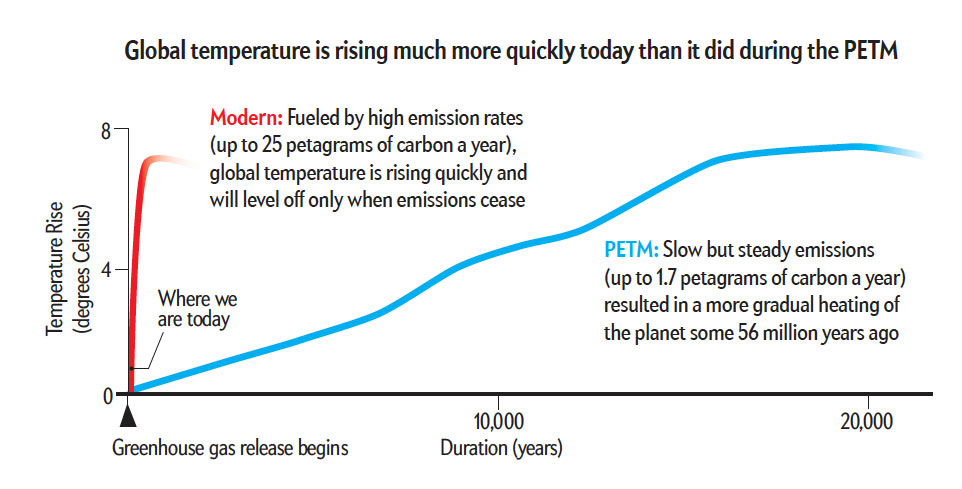I'd like your thoughts about the combination of climate lag (delayed climatic effect of greenhouse gases) and positive feedbacks (ways that a trend's effects intensify the trend itself). These properties of GW suggest to me that our inevitable fate is runaway global warming. In other words, even if all the burning stopped today, warming would continue indefinitely-- and of course burning is not stopping but is increasing at a dizzying rate. Won't feedbacks plus the "catching up" from climate lag overwhelm any adjustments such as improved fuel economy? When I see typical GW projections, they do not seem to incorporate the potential for these two characteristics operating together. What is the best scientific consensus about the potential severity of this?
Yep, it's bad; but....
You're talking about the "runaway greenhouse effect," which looks logical on paper, but in real life the Earth's systems are complex enough that the heat-loss process would reorganize itself (ocean currents, storm tracks, ice sheets, seasons, changing biomass) to be more effective. Life (and civilization/societies) will have to readjust to a new planetary heat-flow cycle (new climate), but things will evolve... depending upon how abruptly the changes manifest.
Here is a recent comment by an actual climate scientist, currently posting in a local newspaper "comments" section... regarding a recent talk by Fred Singer.
http://www.coloradoan.com/comments/artic...tics-challengedIn your next paragraph I have to disagree with you. Climate scientists are not called "AGW proponents" except by political activists. And climate scientists certainly do NOT "hypothesize a postive feedback that amplifies the effect."
Rather, we observe many feedbacks in the climate system, some positive (amplifying) and some negative (damping). The obvious negative feedback is simply thermal radiation: the warmer the surface gets the faster it loses heat by radiation (cooling itself off). The most obvious positive feedback is water vapor: the warmer the surface gets the more water evaporates form the oceans, water vapor is a strong greenhouse gas so extra radiation is added, evaporating more water (warming the surface even more). Other important feedbacks are ice-albedo (positive), low clouds (negative), changes in the vertical variation of temperature (positive), and high clouds (positive).
As you say, the fact that there has been liquid water on Earth over most of geologic time shows that the combined feedback can't be so strong as to cause "runaway" climate change. Fair enough. On the other hand, the fact that climate has changed in the past shows that the combined feedback is not so strongly negative as to resist temperature change like a thermostat.
just fyi, about feedbacks....
Links to the articles and comments can be found at:
http://scienceforums.com/topic/23885-sci...post__p__309086===
Speaking of abrupt change....There is a recent article in
Scientific American, which talks about the
PETM and notes that currently we are on track to change about 100 times faster than that paleontological event 55 million years ago.
http://www.scientificamerican.com/article.cfm?id=the-last-great-global-warming"Surprising new evidence suggests the pace of Earth's most abrupt prehistoric warm-up paled in comparison with what we face today. The episode has lessons for our future."
"....the Paleocene-Eocene Thermal Maximum, or PETM [when] climate zones shifted toward the poles, on land and at sea, forcing plants and animals to migrate, adapt or die. Some of the deepest realms of the ocean became acidified and oxygen-starved, killing off many of the organisms living there. It took nearly 200,000 years for the earth’s natural buffers to bring the fever down."

...for full size image:
http://climatecrock.files.wordpress.com/2011/06/sciampetm.jpg~




